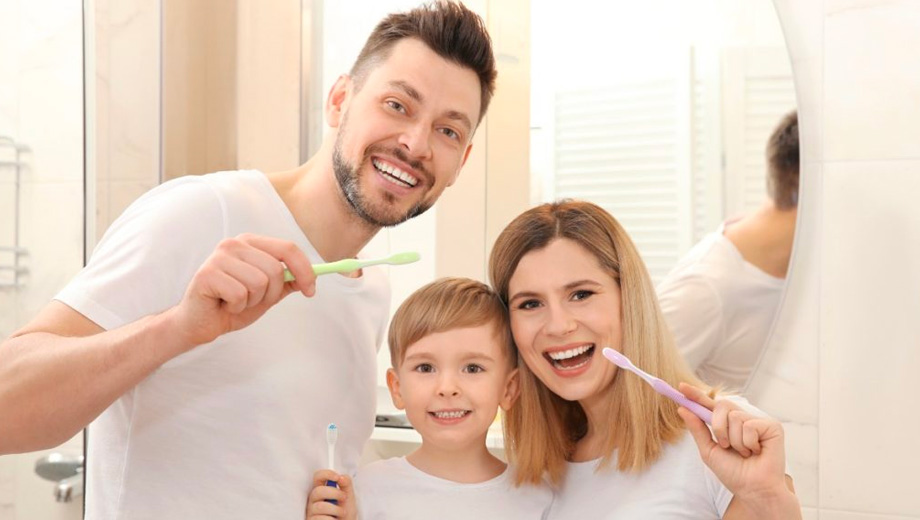The American Academy of Pediatric Dentistry (AAPD) recommends that pregnant women should receive oral care during pregnancy. Dental issues such as periodontal disease can affect pregnancy. Patients who have periodontal disease are at higher risk for pre-term birth, as well as delivering low birth weight newborns. Not only that, but mothers with poor oral health habits can also pass the bacteria that causes cavities along to their children. It is important to discuss proper preventive dental care with a certified dentist during your pregnancy.
Expectant mothers are advised to take the following precautions to help prevent spreading cavity-causing bacteria along to their children:
- Develop and maintain a relationship with a dentist
- Brush and floss regularly
- Eat a proper diet rich in vitamins and minerals
- Reduce their intake of sugary and starchy foods
- Use an ADA recommended fluoride toothpaste to keep enamel strong
- Rinse with a recommended mouth rinse to reduce plaque
- Avoid sharing cups, food or utensils with children because this can transmit the bacteria that can lead to cavities
- Chew sugar-free gum that contains Xylitol
Establish a Dental Home for Your Child
The American Academy of Pediatrics, the American Dental Association and the Academy of Pediatric Dentistry all recommend that you establish a dental home for your child by their first birthday. This ensures your child will have access not only to routine care, but also the necessary preventive care needed to ensure your child has a healthy smile.
Children should begin seeing a dentist regularly when their first tooth appears, or by their first birthday. Parents should surround the dental visit with positive talk and for older children, explain the visit and what the child should expect. It is recommended to avoid language that might cause your child to be afraid or apprehensive of the visit. You can use books, stories and favorite TV shows about visiting the dentist to show your child there is nothing to fear.
When Will Baby Teeth Appear?
Teething is individual, and the time your child will show their first tooth may be very different from other children. Some babies teeth early, while others don’t show their first tooth until much later. In general, the first baby teeth typically appear between 6 and 8 months of age, however, these will be the lower front, or anterior, teeth.
Early Childhood Cavities
Early childhood cavities, sometimes known as baby bottle decay, is unfortunately very common. It is caused by extended exposure to liquids that contain sugar, which can include milk, formula, fruit juice, or other sugary beverages.
To prevent early cavities, avoid putting your baby to bed with a bottle that contains anything other than water. The sugars from liquids, including milk, can pool in the child’s mouth, which gives the bacteria that causes plaque ample time to begin damaging the baby teeth. The bacteria create acid that attack the enamel of the teeth and over time, cavities will set in.
Even before your baby has teeth erupt, it is important to wipe the gums with a damp cloth after each feeding. This helps protect the developing teeth under the gums.
Sippy Cups
Sippy cups are a natural progression as your child weans from a bottle. If your child uses a sippy cup during the day, fill the cup with water only. It is best to save other drinks, such as milk or juice, for mealtimes only. This ensures the sugars from the drink will be adequately washed away. Allowing a sippy cup filled with a sweetened beverage throughout the day means your child’s teeth are constantly awash in sugar, which greatly increases the risk of decay.


